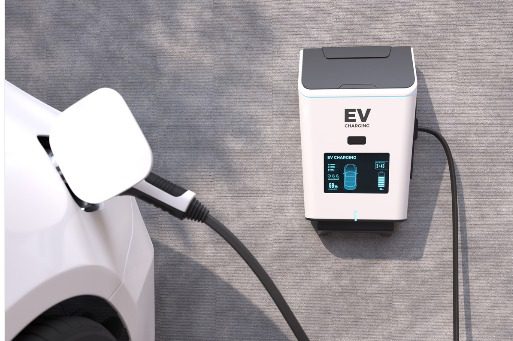New Mexico Adopts Money-Saving Building Codes

[ALBUQUERQUE, NM] – The New Mexico Construction Industries Commission voted Wednesday to adopt the most recent international building energy codes, requiring builders to design and construct new buildings with improved performance.
Specifically, the state adopted the 2021 International Energy Conservation Code (IECC), with additional requirements that new buildings include infrastructure to support charging for electric vehicles (EVs) in some parking spaces.
The codes will help residents and businesses save energy and money on heating, cooling, and lighting; improve construction quality and comfort; increase access to EVs, which are much more affordable to own and operate than gas cars, and offer significant savings on fuel and maintenance.
The updated codes are also an important tool to reduce air pollution, which will improve public health and help protect New Mexicans from climate change.
EV sales are increasing each year, so more and more New Mexicans will be looking for apartment and condominium complexes where they can charge.
The new codes require most new construction to include EV chargers at 5% of parking spaces. Another 5-15%, depending on the type of building, must have the electrical infrastructure to accommodate future chargers.
New Mexico’s major utilities already offer incentives that could cover most or all of the cost of these improvements: the Public Service Company of New Mexico, for example, offers up to $5,000 per unit for charging and installation for multi-unit housing. Developers and building owners can also use incentives in the Inflation Reduction Act, including a federal tax credit for EV charging in rural or low- and moderate-income urban areas. These incentives can often cover the entire cost of installing EV chargers.
This is particularly important for low- and moderate-income residents of apartment buildings, who stand to benefit the most from access to affordable and convenient charging at home. These new requirements align with the state’s Advanced Clean Cars policy, adopted in November, which will gradually make EVs the norm for new car sales in New Mexico.
In response, New Mexico community groups issued the following statements:
“Prosperity Works thanks the commission for passing the new building codes for New Mexico. This is a critical step in building efficiency and utility-rate affordability, and to provide residential and commercial EV charging.” – Ona Porter, Prosperity Works
“More efficient buildings save people money on their electric bills, make our homes and businesses more comfortable, and protect our families’ health. The Construction Industries Commission did the right thing by bringing New Mexico up to date on building efficiency and supporting the infrastructure more and more New Mexicans want for electric vehicles. This is part of the governor’s vision for electrifying our transportation sector, which saves us money at the gas pump and reduces air and climate pollution.” – Camilla Feibelman, Sierra Club Rio Grande Chapter
“These building codes provide another pillar of support for electric vehicles, especially for lower-income people.” – Shelly Mann-Lev, Health Professionals for Climate Action
“Congratulations to the NM Construction Industries Division for acting to address the climate crisis with the important building code updates passed today. Buildings and transportation are some of the worst emitters of climate-warming pollution. These new building codes will improve energy efficiency in buildings and require EV charging at parking lots where people work, shop, and live, including apartments. This is a win for the climate and for New Mexicans. Well done CID!” – Tom Solomon, 350 New Mexico
“The decision to adopt the 2021 IECC and include EV-readiness in the building code will redefine New Mexico’s construction landscape. It aligns the state with modern sustainability standards and positions New Mexico as a trailblazer in environmentally conscious building practices.” – Jim Meyers, Southwest Energy Efficiency Project
“We at NM IPL are grateful for the leadership of the NM Construction Industries Division in adopting the 2021 International Energy Conservation Code. Every measure we take to improve energy efficiency has a profound impact on climate, health, and human dignity. Including EV charging infrastructure in new buildings so that all residents, no matter their type of residence, can participate in our unfolding energy transition is also essential, and we applaud this decision for the common good of our community members.” – Clara Sims, New Mexico & El Paso Region Interfaith Power & Light
“We applaud the Construction Industries Commission and the Lujan Grisham administration for their strong leadership on energy efficiency and transit electrification. The improved building codes will reduce climate pollution while improving community health outcomes and lowering energy costs for New Mexico families. The new codes build on existing state and federal tax incentives, like the Inflation Reduction Act, to significantly increase electric vehicle charger access to renters and homeowners around the state. This is essential in equitably transforming our transportation sector and fighting climate change. – Samantha Kao, Conservation Voters New Mexico
“NM Voices for Children is pleased with the adoption of these codes. This will improve utility costs for families and keep New Mexico in step with the inevitable change over to EVs that will help protect our children’s health and future.” – Bill Jordan, New Mexico Voices For Children
###
The Southwest Energy Efficiency Project (SWEEP) is a public interest organization promoting greater energy efficiency and clean transportation in Arizona, Colorado, Nevada, New Mexico, Utah, and Wyoming. swenergy.org
Contacts:
Jim Meyers, Southwest Energy Efficiency Project | [email protected]
Camilla Feibelman, Sierra Club Rio Grande Chapter | 505-715-8388


